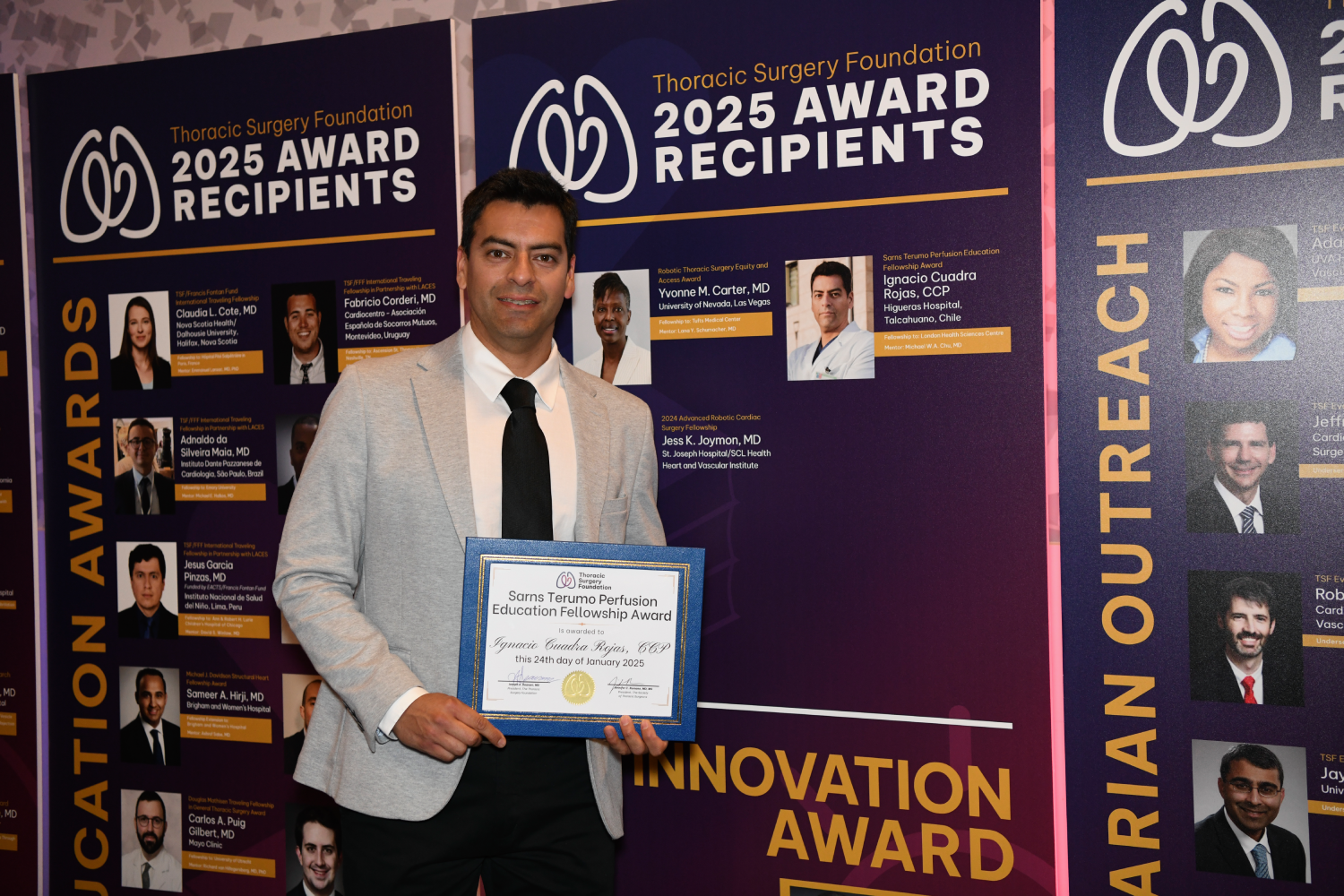The Power to Get Aggressive with Esophageal Disease
.webp)
The Power to Get Aggressive with Esophageal Disease
During the summer of 2018, Stephanie G. Worrell, MD, traveled to The Oregon Clinic in Portland to experience the state of the art in esophageal surgery. Guided by internationally renowned mentors, she explored new cellular visualization technologies, got hands-on experience in an advanced laboratory, and observed more complex esophageal procedures in a few weeks than she’d seen throughout her training thus far.
It was the one piece she’d been missing, she said: “the ability to identify and aggressively treat Barrett’s esophagus and early esophageal cancer.”
During her visit, made possible by the TSF Carolyn E. Reed Traveling Fellowship, Dr. Worrell opened a treasure trove of experience. Within-vivo high-magnification endoscopy, she learned to identify patterns of esophageal disease and dysplasia on a cellular level.
Hands-On Practice, Top-Tier Opportunities
“I saw different treatment strategies, such as cryoablation and endoscopic mucosal resection,” she said. “Dr. Steven DeMeester also had a course on large paraesophageal hernias while I was in Oregon—I was able to see complex paraesophageal hernia repairs with diaphragm relaxing incisions, esophageal lengthening procedures, and hiatal reinforcement with mesh.”
Dr. Worrell also joined the team’s weekly esophageal motility and research conference, where they discussed topics ranging from eosinophilic esophagitis and failed anti-reflux surgery to complex esophageal malignancies and when to give up on saving the esophagus.
Experience to Build a Career
Now serving as clinical associate professor and thoracic section chief in the Division of Cardiothoracic Surgery at the University of Arizona’s College of Medicine in Tucson, Dr. Worrell reflects on how that experience spurred her to develop a complex esophageal practice, and to steer the course of her research toward Barrett’s esophagus treatment and early cancer staging.
“The skills I learned and what I observed in the day-to-day setup at the Oregon clinic showed me how to build my own ‘esophageal health program’,” Dr. Worrell said.
“I am putting together the key infrastructure to be able to offer the same level of diagnosis and treatment at our center at the University of Arizona.”
She has also used those skills to teach others at her institution, and she’s currently proctoring her junior partner in third-space endoscopy. “He did not have as much exposure during training,” Dr. Worrell reflects.
“Beyond these fellowship opportunities, there are not a lot of formal ways to learn a new skill as a faculty.”
Through her leadership work with The Society of Thoracic Surgeons, Dr. Worrell co-chaired the creation of a clinical practice document for resectable esophageal cancer. She hopes that the guidelines, a collaborative effort with the American Society for Radiation Oncology and American Society of Clinical Oncology, will better inform physicians on best practices throughout a multidisciplinary approach.
Dr. Worrell credits the skills in endoscopic mucosal resection she learned under Dr. DeMeester for her successful clinical focus—she says the approach has been the capstone of improving patients’ quality of life while still actively treating their cancer.
She “wholeheartedly recommends” the Carolyn E. Reed Traveling Fellowship as a way to get hands-on training and to jumpstart a career in a focused area of interest.
“As surgeons, we learn a variety of esophageal procedures, and we are well suited to perform advanced endoscopy,” Dr. Worrell said. “But there is much room to improve survival rates. There continue to be advances in the field with no clinical research or new technology.”
“With a dedicated team addressing early esophageal cancer, we can improve the stagnant 20% 5-year survival rate,” she said. “We owe this to our patients.”
Make More Stories Like This Possible
Your gift to TSF supports cardiothoracic surgery professionals in their drive to advance heart and lung health for all. Please consider a gift today!

Make More Stories Like This Possible
Your gift to TSF supports cardiothoracic surgery professionals in their drive to advance heart and lung health for all. Please consider a gift today!

Make More Stories Like This Possible
Your gift to TSF supports cardiothoracic surgery professionals in their drive to advance heart and lung health for all. Please consider a gift today!

Make More Stories Like This Possible
Your gift to TSF supports cardiothoracic surgery professionals in their drive to advance heart and lung health for all. Please consider a gift today!


.webp)

.webp)